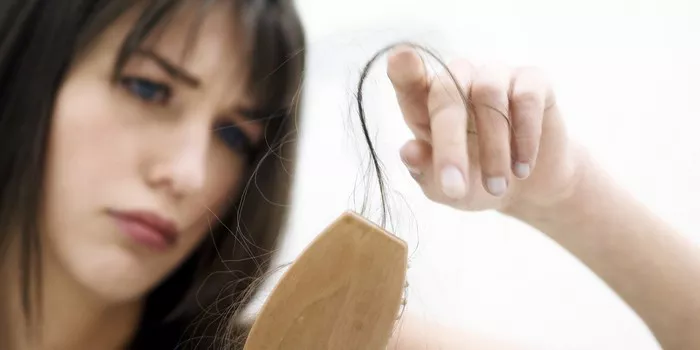Hair loss is a common concern for many women experiencing menopause, with hormonal fluctuations and aging contributing to changes in hair density and texture. As women navigate this significant life transition, one question often arises: How long does menopause hair loss last? In this article, we delve into the timeline of menopause-related hair loss, exploring the duration, patterns, and factors influencing this process.
Understanding Menopause-Related Hair Loss
Before discussing the duration of menopause-related hair loss, it’s essential to understand the underlying mechanisms and factors contributing to this condition:
Hormonal Fluctuations: During menopause, the ovaries gradually decrease their production of estrogen and progesterone, leading to hormonal imbalances. These fluctuations can impact the hair growth cycle and contribute to hair thinning and loss.
Genetic Predisposition: Genetic factors play a significant role in determining an individual’s susceptibility to hair loss, including female pattern baldness. Women with a family history of hair loss may be more prone to experiencing significant hair thinning during menopause.
Age-Related Changes: Aging itself can affect hair health, as the hair growth cycle slows down, and hair follicles become less active. This can result in reduced hair density and changes in hair texture over time.
Duration of Menopause Hair Loss
While menopause-related hair loss can vary among individuals, the duration of this condition typically follows a general timeline:
Onset: Menopause-related hair loss often begins around the time of menopause, which typically occurs between the ages of 45 and 55. Some women may notice increased shedding or thinning of hair during the perimenopausal period leading up to menopause, while others may experience hair loss after menopause has occurred.
Duration: The duration of menopause-related hair loss can vary widely among individuals. For some women, hair loss may be temporary and resolve on its own within a few months to a year after the onset of menopause. Others may experience more prolonged or persistent hair loss that lasts for several years.
Fluctuations: It’s important to note that menopause-related hair loss may not follow a linear trajectory and may fluctuate over time. Women may experience periods of increased shedding followed by periods of relative stability or improvement in hair density.
Post-Menopause: While hair loss during menopause may improve for some women over time, others may continue to experience hair thinning and loss in the post-menopausal years. Aging-related changes in hormone levels and hair follicle function can contribute to ongoing hair loss in some individuals.
Factors Influencing Duration
Several factors can influence the duration and severity of menopause-related hair loss:
Genetics: Genetic predisposition plays a significant role in determining the extent and duration of hair loss during menopause. Women with a family history of hair loss may be more likely to experience prolonged or severe hair thinning.
Hormonal Balance: Hormonal imbalances, particularly fluctuations in estrogen and progesterone levels, can impact the hair growth cycle and contribute to hair loss. Achieving hormonal balance through lifestyle changes or hormone replacement therapy may help alleviate hair loss symptoms.
Stress Levels: Chronic stress can exacerbate hair loss during menopause by triggering hormonal imbalances and inflammatory responses in the body. Managing stress through relaxation techniques, exercise, and stress-reducing activities may help minimize hair loss.
Nutritional Status: Adequate intake of essential nutrients such as vitamins, minerals, and protein is crucial for maintaining healthy hair growth. Nutritional deficiencies can exacerbate hair loss symptoms and prolong the duration of hair thinning during menopause.
Managing Menopause-Related Hair Loss
While menopause-related hair loss can be distressing, there are steps women can take to manage and minimize its impact:
Healthy Lifestyle: Adopting a balanced diet rich in essential nutrients, regular exercise routine, and stress management techniques can support overall health and hair growth during menopause.
Hair Care Practices: Gentle hair care practices, such as using mild shampoos, avoiding excessive heat styling, and minimizing tight hairstyles, can help reduce hair damage and breakage.
Scalp Health: Maintaining a healthy scalp environment through regular cleansing, massage, and scalp treatments can promote optimal hair growth and minimize hair loss.
Medical Interventions: In cases of severe or persistent hair loss, women may consider seeking medical evaluation and treatment options, such as hormone replacement therapy, minoxidil (Rogaine), or platelet-rich plasma (PRP) therapy.
Conclusion
In conclusion, the duration of menopause-related hair loss can vary among individuals, with some women experiencing temporary shedding or thinning that resolves within a few months to a year, while others may experience more prolonged or persistent hair loss. Understanding the underlying mechanisms and factors influencing hair loss during menopause is crucial for developing effective strategies for prevention and management. By adopting a holistic approach to health, including proper nutrition, stress management, and appropriate hair care practices, women can minimize the impact of menopause-related hair loss and maintain healthy, vibrant hair throughout this significant life transition.
How Much Hair Loss Is Normal During Menopause

